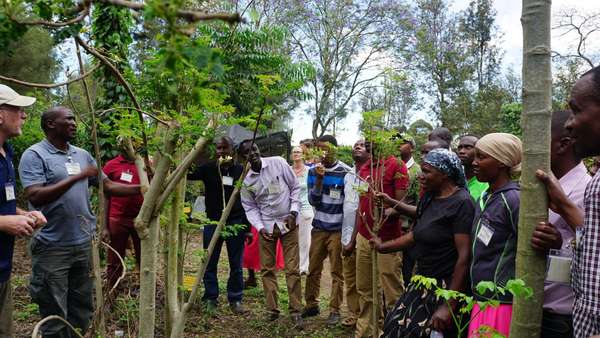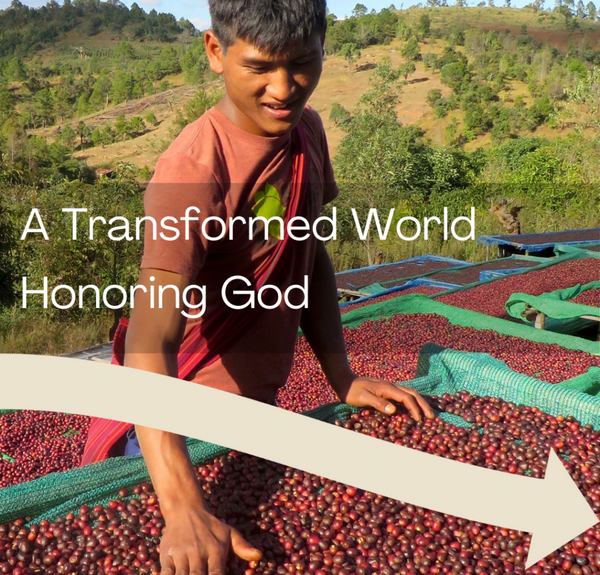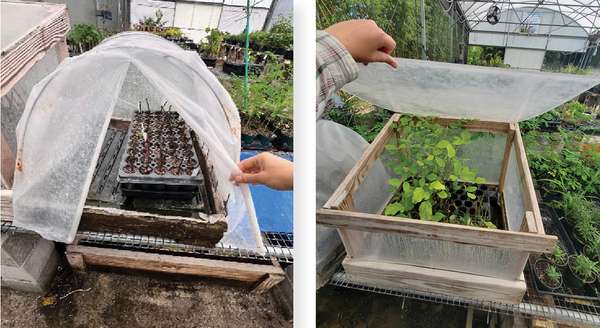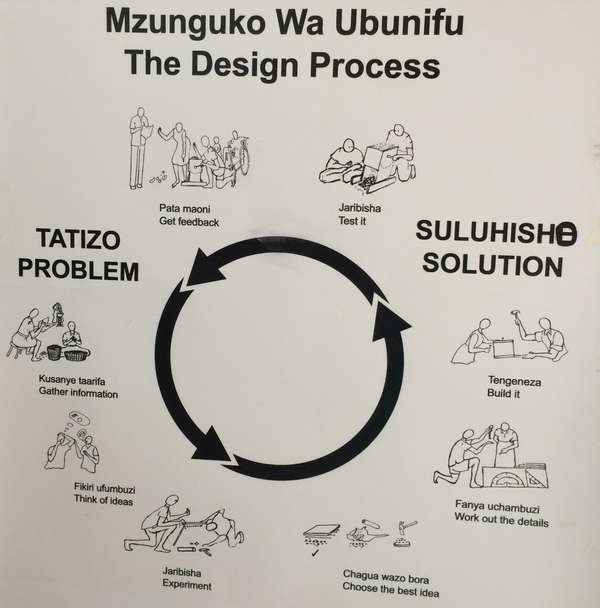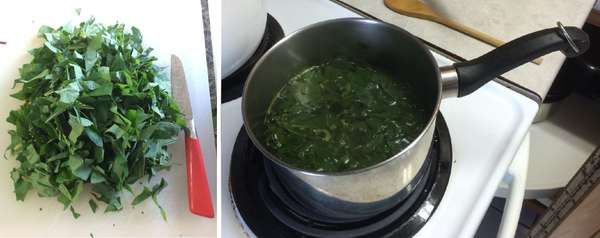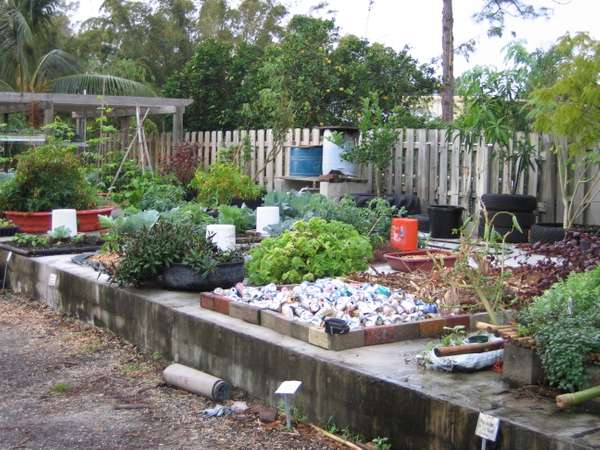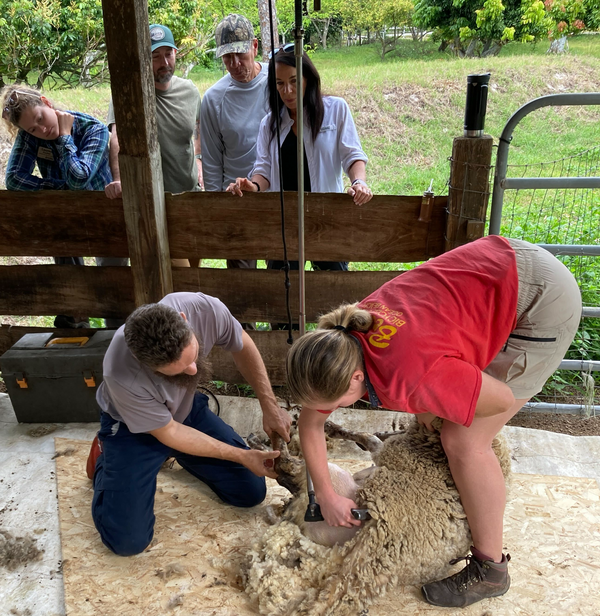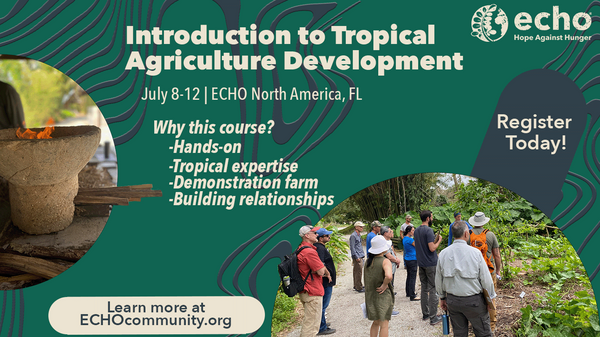ECHOcommunity更新
This August in Malawi: ECHO East Africa and Canadian Foodgrains Bank Joint Symposium 2024-07-02
Best Practices in Sustainable Agriculture & Appropriate Technologies
ECHO East Africa and Canadian Foodgrains Bank will be sharing best practices promoted by different specialists from across the region. It will be an opportunity to network among those working in East and Southern Africa to alleviate poverty, fight against hunger, and improve food security and the overall livelihood of the people we serve.
We hope you will encourage your colleagues and partners in other organizations to attend, and even to offer presentations. We encourage organizations to support participants, especially from Malawi who are working on the frontlines of rural development to combat hunger, poverty, and malnutrition and to raise standards of living. Please refer this opportunity to people you know or send us any contacts or networks whom you think we should invite. We anticipate this to be a very rich event for all involved.
General themes:
- agroecology
- climate smart practices
- conservation agriculture
- arden techniques in drylands
- nutrition improvement
- a Biblical basis to working in communities
- reconciliation/peace-making
- reducing post- harvest losses
- gender, women and girls’ issues
ECHO Fully Forward Together Strategic Framework 2024-06-24
As the world has shifted and changed, ECHO has shifted and changed to meet the needs of smallholder farmers but stay true and consistent to our calling and passions. ECHO is defined not only by what we do but by who we are and the values we uphold. We are committed to remain steadfast in our mission to defeat hunger and improve lives worldwide. Each person and team is committed to honoring God by moving fully forward together, serving the world with passion, integrity, and purpose. Thank you for joining with ECHO!
Learn More about ECHO's Vision and Mission
Download the Strategic Framework (PDF)
July24 TAD Registration Closing Soon 2024-06-18
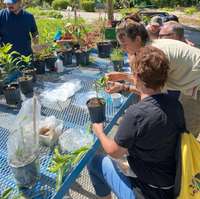 Are you still thinking about signing up for our Introduction to Tropical Agriculture Development course? By taking this 5 day training course you will learn from experienced staff about topics such as seed saving, soil health, agroforestry, appropriate technology, propagation, farm planning and MORE!
Are you still thinking about signing up for our Introduction to Tropical Agriculture Development course? By taking this 5 day training course you will learn from experienced staff about topics such as seed saving, soil health, agroforestry, appropriate technology, propagation, farm planning and MORE!
Registration prices include training, lodging AND meals (breakfast, lunch and dinner)!
Don't miss this training opportunity and sign up today! Registration for this course ends on June 30th. To find out more details and to register please click the link below.
ECHO North America: Introduction to Tropical Agriculture Development
EIAC Registration Now Open! 2024-06-11
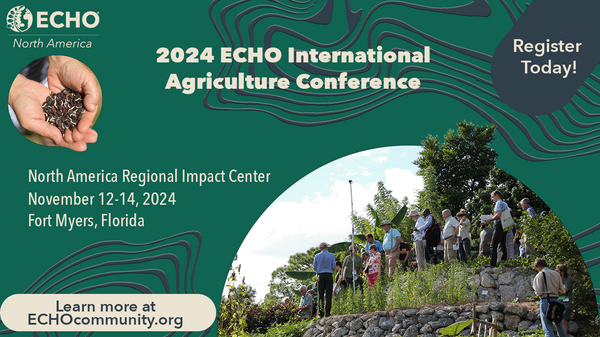 2024 ECHO International Agriculture Conference registration is now open!
2024 ECHO International Agriculture Conference registration is now open!
The plenary speakers, breakout sessions and workshops provide opportunities for learning with others devoted to eradicating hunger and improving lives through agriculture and community development. Speakers share their agricultural challenges and successes, personal experiences, and transferrable principles for improving the lives of millions facing food insecurity daily. The highlight is networking with like-minded practitioners, researchers, and educators. The conference is from November 12-14 in Fort Myers, Florida. Come celebrate over 30 years of networking and learning together!
EDN #164 Now Available 2024-06-03
In this issue
- Poly-propagators
- Coffee Parchment as a Feed Supplement for Dairy Cattle
- Echoes from our Network: Paddy Rice Seed Assessment Using Salt and Eggs
- From ECHO's Seed Bank: Wild Marigold for Natural Pest Control and More
- Books, Websites, and Other Resources: Compendium of Forgotten Foods in Africa
Poly-propagators
Lauren Daniels-Judge
Excerpt:
Depending on the season, allow more airflow into poly-propagators by lifting sides of the polythene or plexiglass. In the hottest months, we find that temperatures inside the poly-propagators can reach higher than 35°C (95°F), which is too hot for most propagation material. During hot months, check the humidity and heat levels in the poly-propagator daily and adjust the airflow accordingly. You can roll the polyethylene sides up so that you slowly wean the plants into lower humidity or provide temporary relief from heat.
Creative Capacity Building 2024-05-28
ECHO East Africa regularly engages local communities in creative capacity building workshops. Design is a creative process in which everyone can engage meaningfully in addressing community-level problems. Solutions are better when the design process is inclusive and when contributors are encouraged in their creative abilities. Honoring and celebrating farmer perspectives is vital to community engagement and progress. Creative capacity building shifts the focus of technological development to the design process, instead of the end product. In their talk, Erwin and Harold share about what Creative Capacity is as well as share their experience in coordinating and conducting Creative Capacity Training Workshops (originally an MIT initiative).
Design your CCB Training Today!
ECHO Research Network Beginnings 2024-05-22
ECHO prioritizes research that addresses farmer level-concerns and often times originates from farmers' creativity! We are excited to start a network of research-minded ECHO community members who can both learn from ECHO's research (at varying levels) as well as advise or partake in ECHO's research questions. To help with communication and clarity, ECHO will send out regular Research Newsletter to share research engagement opportunities, options for sharing knowledge, and ECHO research updates. You are invited to join this Research Network if it is of interest to you! Below is one example from the most recent Research Newsletter.
Safe consumption of chaya (Cnidoscolus aconitifolius): Chaya is a perennial shrub that is an excellent source of nutritious, edible leaves. Much like cassava, however, it contains cyanogenic glycosides that release hydrocyanic acid (HCN) when cooked in water. While these compounds confer protection against herbivory, the plants should be processed before eating. We know that boiling the leaves is effective. One question that has come up quite often in recent months is:
- Does drying chaya leaves make them safe to eat? What little information there is in the literature suggests that drying is most effective if combined with crushing or grinding.
Urban Garden Webinar May 22nd! 2024-05-14
Dr. Grace Ju Miller and Jared Bond from the ECHO North America Regional Impact Center will give a webinar presentation about urban gardening on 22 May 2024 at 18:00 Bangkok (please check your local time here).
The webinar will feature urban garden options for growing food in limited space and/or soil! Growing in containers using lightweight and low-cost materials requires minimal inputs. Urban gardening is an important part of food security and malnutrition as more people migrate to cities.
From ECHO's Farm: Sheep Shearing 2024-05-07
ECHO North America Regional Impact Center’s sheep recently received their yearly shearing! Each spring, we shear our sheep to prepare them for the summer heat. A local professional shearer graciously volunteers his time, and our interns get a chance to try it out as well. Lately, we have been using the sheep to help restore the productivity of our pasture through practicing rotational grazing, and we will soon see an increase in the size of our flock; our next lambs are this coming June!
ECHO North America TAD 1 July 2024 2024-04-30
Have you registered for our next Introduction to Tropical Agriculture Development course yet? This course will be July 8-12 and will cover a broad range of topics concerning agriculture in tropical climates. Click the image below to get more information about the course and how to register online! Our Early Bird special rate is active until May 19th, then prices will go up. Don't wait, register today!
